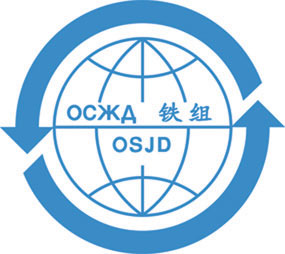Cooperation with UNESCAP
International freight trains have been playing a critical role in transporting medical supplies, equipment and essential goods during the COVID-19 pandemic. For many countries in Eurasia and landlocked developing countries, railways are the backbone of their economies. In times of crisis, it is crucial that railways respond appropriately with increased connectivity and sustainability. Amid the pandemic, ESCAP and the Organization for Cooperation Between Railways (OSJD) are calling for measures to facilitate cross-border railway transport and collaboration through existing platforms, including the Trans-Asian Railway Network. download PDF
UNESCAP Ad-Hoc Expert Group meeting on facilitation of international railway transport

The UNESCAP Ad-Hoc Expert Group Meeting on Facilitation of International Railway Transport, which took place in Bangkok (Kingdom of Thailand) on 11-12 March 2015, was attended by the representatives of Vietnam, India, Iran, Kazakhstan, Malaysia, Mongolia, Republic of Korea, Thailand, as well as international organisations: OSJD Committee, CIT, UIC and CCTT.
The meeting participants were delivered a presentation concerning the structure, fields of OSJD activities, international agreements and contracts, which depositary's functions the OSJD Committee bears.
The presentations of the representatives from India, Malaysia and Thailand contained information on the current situation in the railway sectors of those countries.
UIC representative dwelt upon the problematics of new technologies and 'International Railway Standards'. The CIT presentation emphasised the issues of COTIF structure and application, as well as the CIM-SMGS. Consignment Note application.
At this stage the UNESCAP Secretariat's affords are aimed at the development of the international rail transportation in the Asian-Pacific Area. In this respect further harmonisation of legal regimes applicable for such transportations is important. The Asian-Pacific Area is cha-recterised by different approaches as regards the development of transport ties. Unlike European countries where at this stage legal and technical basis for railway cooperation in the form of relevant conventions and agreements does exist, the countries of the Asian-Pacific Area participate in profile organisations of multilateral collaboration not in full composition, preferring to take part in highly specialised agreements within subregional associations (ASEAN, ATEC, CARES, SAARC, etc.) or the documents adopted on a bilateral/tripartite basis. For example, only 14 countries of the UNESCAP region are members of the Organisation for Cooperation between Railways (OSJD) and only 6 are members of OTIF. This results in a considerable number of legal collisions and in a complicated legal system regulating the international rail traffic (in particular this is the case with the countries of South and South-East Asia).
To tackle these challenges the UNESCAP Secretariat developed a draft Programme of Cooperation aimed at facilitating the international rail traffic procedures. The document contains recommendations for the region's states at international and national levels for facilitation of railway traffic procedures, including accession to the multilateral profile agreements at the international and national levels (including those existing within the OSJD framework), elimination of legal collisions, unification of regulatory and legal basis, introduction of technical regulations and advanced technologies.
The document approval was planned within the 71st UNESCAP session (25-29 May 2015). Subsequently a working group is supposed to be established which will deal with practical issues of Programme implementation. The draft Programme is aimed at bringing the regional transport cooperation to a qualitatively new level.
